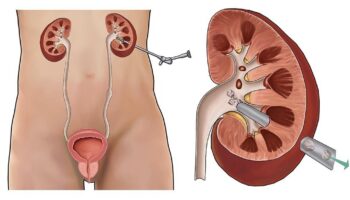Endometriosis is a condition where tissues that form the uterus lining (endometrium) grow outside the uterus. Endometriosis is typically common on ovaries but can be found on fallopian tubes too. Endometriosis can be further classified as a superficial peritoneal lesion, ovarian lesion, and deeply infiltrating endometriosis. If you want to get more info on endometriosis in Boynton Beach, there are many clinics for help.
What Are the Common Symptoms?
In endometriosis, tissues that grow outside the uterus lining work like endometrial tissues. After each menstrual cycle, these tissues can thicken, break, and eventually bleed. Since there is no way for the tissue to drain out of the body, the condition can eventually cause ovarian cysts known as endometriomas. The most common symptom of endometriosis is pain in the pelvic area, and patients often complain of period discomfort and cramps. Dysmenorrhea can cause further complications, and the patient may have lower back pain.
Patients diagnosed with endometriosis often have other symptoms, such as painful intercourse, pain while urinating or passing bowels, and extreme bleeding. Endometriosis is also one of the leading causes of infertility. Some women also complain of nausea and bloating.
What Causes Endometriosis?
Doctors aren’t entirely sure of what causes endometriosis, but it could be related to retrograde menstruation. The condition can be hereditary too. Retrograde menstruation is when the menstrual blood flows back into the pelvic cavity by passing through the fallopian tubes instead of getting discharged from the body. Menstrual blood contains endometrial cells, which can stick to the pelvic organs and grow. There is also some evidence that hormones can change embryonic cells during puberty, leading to the condition. A C-section surgery or other surgeries can also trigger endometriosis.
How Is Endometriosis Treated?
Unfortunately, there is no cure for endometriosis, but your doctor can help manage the symptoms to have a better quality of life. Medications are typically used as the first line of treatment, but surgery could be an option if the patient doesn’t respond to the treatment. If you have painful periods because of endometriosis, your doctor may suggest OTC painkillers. Hormone therapy has helped some patients, while doctors also use hormonal contraceptives for treatment.
How Is the Condition Diagnosed?
Your doctor will most likely do a pelvic exam, following which imaging and further tests can be ordered. An abdominal ultrasound, or a transvaginal ultrasound, can help in diagnosing endometriosis. The most reliable and trusted way of diagnosing endometriosis is laparoscopy, which is a minor surgical procedure. If your surgeon can diagnose endometriosis, they may remove the unwanted tissues during the procedure.
Endometriosis can impact fertility. If you have been diagnosed with endometriosis, you need to consider having children sooner, as the symptoms can only worsen with time. Do not delay in calling your gynecologist if you have evident symptoms or painful periods. You may also want to go for a check if you have endometriosis in the family. The symptoms, especially during your periods, can impact your lifestyle and activities. Medical attention is necessary to manage endometriosis.





